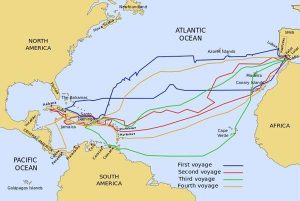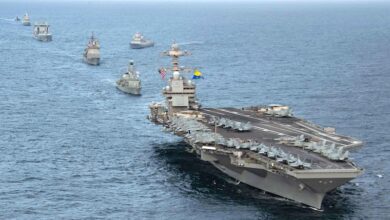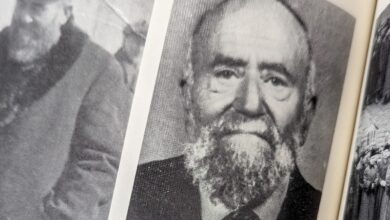
While thousands of people are celebrating Columbus Day, more and more people and cities are refusing to observe the holiday — including a city named after Christopher Columbus.
“We have a number of veterans who work for the city, and there are so many here in Columbus,” a city spokesperson said, according to the paper. “We thought it was important to honor them with that day off.”
Columbus isn’t alone. More people are instead opting to celebrate the alternative Indigenous Peoples’ Day, according to USA Today. Destruction and vandalism of Columbus statues is increasing across the nation.
Columbus Day is meant to celebrate the anniversary of Italian explorer Christopher Columbus’ arrival in the Americas. It is celebrated the second Monday in October. The discovery of the continent opened up the land for colonization by Europeans.
Cities like Cincinnati, Ohio; Somerville, Mass.; and La Crosse, Wisc., have also opted to celebrate Indigenous Peoples’ Day.
“The arc of history bends not only toward justice, but toward reason. Columbus Day is a relic of an outdated and oversimplified version of history,” Somerville mayor Joe Curtatone wrote on Facebook.
READ: College students want Columbus Day replaced
The rest of the story
“In Fourteen Hundred and Ninety Two, Columbus sailed the ocean blue!”
We all remember the rhyme we learned in school. And many are pushing back against the efforts to dump Columbus — especially Italian-Americans for whom Columbus’ discovery is a point of pride in a long history of anti-Italianism, The New York Times reported.
“I appreciate that for many people, including some Italian-Americans, the celebration of Columbus is viewed as belittling the suffering of indigenous peoples at the hands of Europeans. But for countless people in my community, Columbus, and Columbus Day, represent an opportunity to celebrate our contributions to this country,” John M. Viola, president of the National Italian American Foundation, wrote in a 2017 op-ed for the paper.
“We believe Christopher Columbus represents the values of discovery and risk that are at the heart of the American dream, and that it is our job as the community most closely associated with his legacy to be at the forefront of a sensitive and engaging path forward, toward a solution that considers all sides,” he wrote.
The debate continues to rage on social media as well, with some saying Christopher Columbus should no longer be honored and others saying the holiday should stay.
The faith angle
Contrary to legend, Columbus did not sail to prove the earth was round. Most educated Europeans and mariners already knew that.
Columbus estimated the size of the Atlantic Ocean partially from reading his Bible. He had read in the Second Book of Esdras (in the Apocrypha) that God created the world in seven parts, six of them dry land and the seventh water. He thus calculated that the ocean separating Portugal from Cipangu (Japan) was one-seventh of the earth’s circumference, or about 2,400 miles. He figured that by sailing 100 miles per day, he could reach the Indies in 30 days.
Unlike many sailors then and now, Christopher Columbus never used profanity.
 During Columbus’s voyages, the ships’ crews observed religious rites. Every time they turned the half-hour glass (their primary means of keeping time), they cried: “Blessed be the hour of our Savior’s birth / blessed be the Virgin Mary who bore him / and blessed be John who baptized him.” They finished each day by singing vespers together (although reportedly they sang out of tune).
During Columbus’s voyages, the ships’ crews observed religious rites. Every time they turned the half-hour glass (their primary means of keeping time), they cried: “Blessed be the hour of our Savior’s birth / blessed be the Virgin Mary who bore him / and blessed be John who baptized him.” They finished each day by singing vespers together (although reportedly they sang out of tune).
Not until his third voyage did Columbus actually land on the American mainland. Seeing four rivers flowing from the landmass, he believed he had encountered the Garden of Eden. He died in 1506 unaware he had landed thousands of miles short of the Orient.
Irish and French Catholics have argued that Columbus, who “brought the Christian faith to half the world,” should be named a saint. Though the move had the approval of Pope Pius IX (reign 1846–1878), Columbus was never canonized because he fathered an illegitimate child, and there was no proof he had performed a miracle.
Between 1493 and 1820, Spain sent some 15,585 missionaries to the Americas.
Columbus had great moral and physical courage. Again and again he faced mutinous sailors, armed rebels, frightful storms, and fighting Indians.
Christopher Columbus had a mystic belief that God intended him to sail the Atlantic Ocean in order to spread Christianity. He said his prayers several times daily. Columbus wrote what he called a Book of Prophecies, which is a compilation of passages Columbus selected from the Bible which he believed were pertinent to his mission of discovery. What a person believes is what determines his interpretation of life and history and inspires his vision and purpose in life. Columbus’s own writings prove that he believed that God revealed His plan for the world in the Bible, the infallible Word of God. Columbus believed that he was obeying the mission God staked out for his life when he set sail west across the Atlantic Ocean.
Columbus was a product of his time. It may be difficult for modern Christians to understand many of the actions and motivations of a man like Columbus, who claimed to be a Christian and hailed from an incredibly religious culture of origin. But Columbus lived in a very different world. Europeans of Columbus’ day were not troubled over many matters that concern our world today, such as the preservation of ancient culture and the freedom to practice any religion one pleases. Spain was looking to colonize, to expand its empire, and Columbus was ready to help it do so in order to explore the world.
Columbus’s voyage to America ranks among history’s most important events. It led to lasting contacts between Europe and America, and it opened new windows.
The horse from Europe allowed Native American tribes in the Great Plains of North America to shift from a nomadic to a hunting lifestyle. Foods from the Americas such as potatoes, tomatoes and corn became staples of Europeans and helped increase their populations. Wheat from Europe and the Old World fast became a main food source for people in the Americas. Coffee from Africa and sugar cane from Asia became major cash crops for Latin American countries.
Unfortunately, the diseases that came part and parcel with this great exchange had devastating effects in the Americas, not to mention the introduction of the slave trade there. Then again, except for Columbus, some think the Americas could very well have become Islamic.
Despite alleged atrocities attributed to Columbus and his men, it is important to remember that none of our past heroes were perfect. But that does not mean they weren’t important parts of our history, and they can still be recognized for the positive things they accomplished.
Many tales are told and studies done that may list all the good and/or all the bad done by our past heroes. The truth is usually somewhere in between.
- SCOTT BERSON, sberson@mcclatchy.com, THOMAS S. GILES, christianitytoday.com, Phyllis Schlafly/Eagle Forum and Debbie Holloway, crosswalk.com contributed to this article









